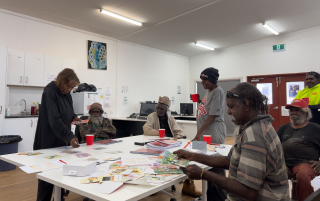
The latest grains research insights relevant to farming systems on Lower Eyre Peninsula will be extended directly to growers later this month.
The Grains Research and Development Corporation (GRDC) is hosting a Grains Research Update for growers in the Port Lincoln district and surrounding areas via an online platform on Thursday, July 30.
Growers and advisers are encouraged to tune in for a brief but dynamic program from 9.30 to 11am.
GRDC Grower Relations Manager – South, Tom Blake, says the Port Lincoln Update, to be streamed live, will enable growers to tap into GRDC research relevant to their farming systems.
“This Update will provide growers with a valuable opportunity to discuss with the experts a range of topics of regional interest, such as this year’s unusual insect pest activity across Eyre Peninsula, incorporating Roundup Ready® canola varieties into the farming system and new products for ryegrass control,” Mr Blake says.
“Despite the implications of COVID-19, the GRDC remains committed to ensuring that growers don’t miss out on the latest research findings, advice and recommendations.
“Even though we can’t host the in-person regional event that was originally planned, this online Update will allow participants to hear from and interact with the experts on a range of hand-picked topics.”
Live question and answer sessions will feature entomologist Maarten van Helden from the South Australian Research and Development Institute (the research division of Primary Industries and Regions SA), who will delve into learnings from the unusual insect activity this year.
Chris Preston from the University of Adelaide will advise growers on how they can optimise the impact of new products for ryegrass control.
With the addition of Roundup Ready® canola varieties becoming available to mainland SA growers in 2021, the learnings and experiences of growing these new technology crops will be shared by Victorian agronomist Craig Drum, of Dagro consulting.
EPAG Research consultant Andrew Ware will contribute to discussions around applying research outcomes to local conditions and farming systems.
Free online registration is via







